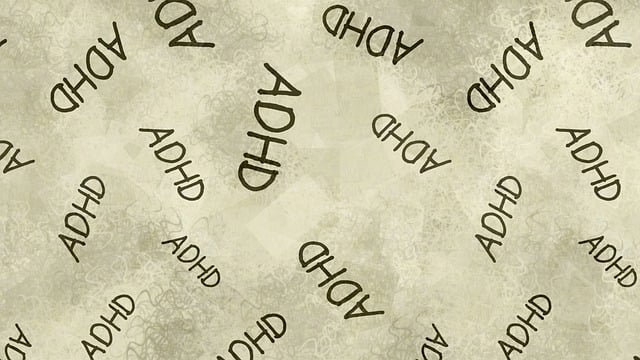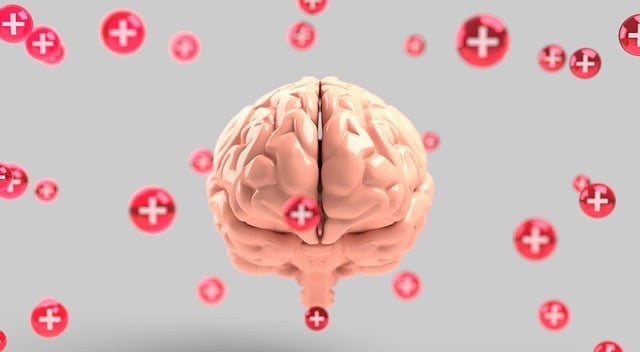Functional Neurological Disorders (FNDs) significantly impact daily life and mental health, requiring personalized therapy approaches. The integration of innovative self-assessment tools in adult therapy is crucial for effective treatment, addressing FND symptoms like pain, sensory issues, and motor difficulties. These tools focus on holistic well-being, including emotional, social, and sleep aspects, while incorporating mindfulness practices. Tailored questions ensure accurate assessment for FND patients, reducing stigma and promoting burnout prevention for healthcare providers. By leveraging specialized approaches, mental health professionals gain insights to create effective treatment plans, encompassing Social Skills Training and Trauma Support Services. Advocacy for evidence-based Mental Health Policy Analysis further enhances care quality. Self-assessment tools, when integrated into therapy, empower patients to actively manage their mental health and track progress, ultimately improving outcomes for adults with FND.
In today’s fast-paced world, prioritizing mental wellness is paramount. This article explores the development of mental wellness self-assessment tools tailored for adults, with a specific focus on Functional Neurological Disorders (FND). Understanding FND’s impact on mental health is crucial, highlighting the need for personalized assessment in adult therapy. We delve into key components for effective tools, targeting specific FND symptoms and associated mental health issues. By integrating these self-assessments, therapists can enhance patient outcomes and revolutionize care for adults with FND.
- Understanding Functional Neurological Disorders and Their Impact on Mental Wellness
- The Need for Personalized Self-Assessment Tools in Adult Therapy
- Key Components of an Effective Mental Wellness Self-Assessment
- Developing Tools to Measure Specific FND Symptoms and Associated Mental Health Issues
- Integrating Self-Assessment into Adult Therapy: Strategies and Best Practices
Understanding Functional Neurological Disorders and Their Impact on Mental Wellness

Functional Neurological Disorders (FNDs) represent a growing area of focus in mental wellness due to their significant impact on an individual’s daily functioning and overall mental health. These disorders, often affecting cognitive processes, emotions, and movement, can lead to diverse symptoms such as persistent pain, sensory disturbances, and motor impairments. Understanding FNDs is crucial for mental health professionals as it allows for more accurate diagnosis and tailored therapy for adults suffering from these conditions.
The impact of FNDs extends beyond physical symptoms; they often contribute to mental illness stigma reduction efforts by challenging societal perceptions of what constitutes a ‘mental illness’. By integrating knowledge about FNDs into their practice, mental health professionals can develop enhanced empathy building strategies, fostering better patient-therapist relationships and improving treatment outcomes. This, in turn, can promote a more inclusive approach to mental wellness assessment and care.
The Need for Personalized Self-Assessment Tools in Adult Therapy

In today’s fast-paced world, mental wellness is a cornerstone for overall well-being, especially among adults facing complex challenges such as functional neurological disorders (FND). Traditional therapy methods often lack tailored assessments that capture the nuances of an individual’s experience, making it difficult to provide personalized treatment. Thus, there arises a compelling need for innovative self-assessment tools designed specifically for adult therapy. These tools should facilitate a comprehensive understanding of each patient’s unique mental landscape, encompassing their symptoms, coping mechanisms, and underlying causes.
By employing personalized self-assessment tools, therapists can more effectively target specific issues like burnout prevention, inner strength development, and conflict resolution techniques. This shift towards individualized care ensures that therapy sessions are not one-size-fits-all but rather tailored to address the most pressing needs of each adult client. Ultimately, such tools have the potential to revolutionize therapy for adults with FND and other mental health concerns, fostering more meaningful and successful treatment outcomes.
Key Components of an Effective Mental Wellness Self-Assessment

An effective mental wellness self-assessment tool should encompass several key components tailored to individual needs and concerns. Firstly, it must include a comprehensive range of questions covering various aspects of mental health, such as emotional well-being, stress levels, sleep patterns, and social interactions. This holistic approach ensures that individuals can identify potential issues across different life domains. For instance, incorporating queries about the impact of daily routines, work-life balance, and coping mechanisms is vital for assessing overall mental wellness.
Additionally, integrating evidence-based practices like mindfulness meditation techniques or exercises to promote self-reflection can enhance the tool’s effectiveness. These strategies empower individuals to actively participate in their mental health journey. Furthermore, considering the unique challenges faced by adults with functional neurological disorders (FND), specific questions tailored to these experiences can be valuable. Mental illness stigma reduction efforts and burnout prevention strategies for healthcare providers are also essential components that encourage accurate self-assessment and foster a supportive environment.
Developing Tools to Measure Specific FND Symptoms and Associated Mental Health Issues

The development of self-assessment tools tailored to Functional Neurological Disorder (FND) symptoms is a significant step forward in therapy for adults suffering from this complex condition. As FND presents with diverse and often subtle manifestations, measuring its impact requires specialized approaches. These tools aim to capture the specific symptoms, such as sensory issues, motor problems, and cognitive impairments, which can be coupled with associated mental health issues like anxiety and depression. By focusing on these aspects, therapists can gain a more comprehensive understanding of an individual’s experience and tailor their treatment accordingly.
Incorporating elements like Social Skills Training and Trauma Support Services within these self-assessment tools could prove invaluable. Mental Health Policy Analysis and Advocacy also play a crucial role in ensuring these instruments are evidence-based and aligned with the latest research, enabling healthcare professionals to provide effective care for FND patients and advocate for improved mental health services.
Integrating Self-Assessment into Adult Therapy: Strategies and Best Practices

Integrating self-assessment tools into adult therapy is a powerful strategy to enhance treatment outcomes and promote mental wellness. These assessments empower individuals to take an active role in understanding their psychological state, identifying areas of concern, and tracking progress over time. For adults with functional neurological disorders (FND), self-assessment can be particularly beneficial as it allows them to gain insight into their symptoms’ impact on daily life, fostering a sense of agency and engagement in their therapy journey.
Therapists can facilitate this process by providing clear instructions, ensuring privacy and confidentiality, and offering constructive feedback. Encouraging clients to regularly complete self-assessments between sessions supports continuous learning and reflection. Additionally, incorporating these tools into risk management planning for mental health professionals is essential, as it enables practitioners to monitor client progress, identify potential risks or relapses early on, and tailor interventions accordingly, ultimately enhancing the overall effectiveness of therapy for adults with FND and contributing to successful mood management.
The development of personalized mental wellness self-assessment tools is a significant step forward in therapy for adults with functional neurological disorders (FND). By focusing on key components and integrating specific FND symptoms, these tools can enhance the therapeutic process. Healthcare professionals can use them to gain valuable insights into patients’ mental health, enabling more effective treatment plans tailored to individual needs. This innovative approach promises to revolutionize adult therapy by empowering individuals to actively participate in their mental wellness journey.









